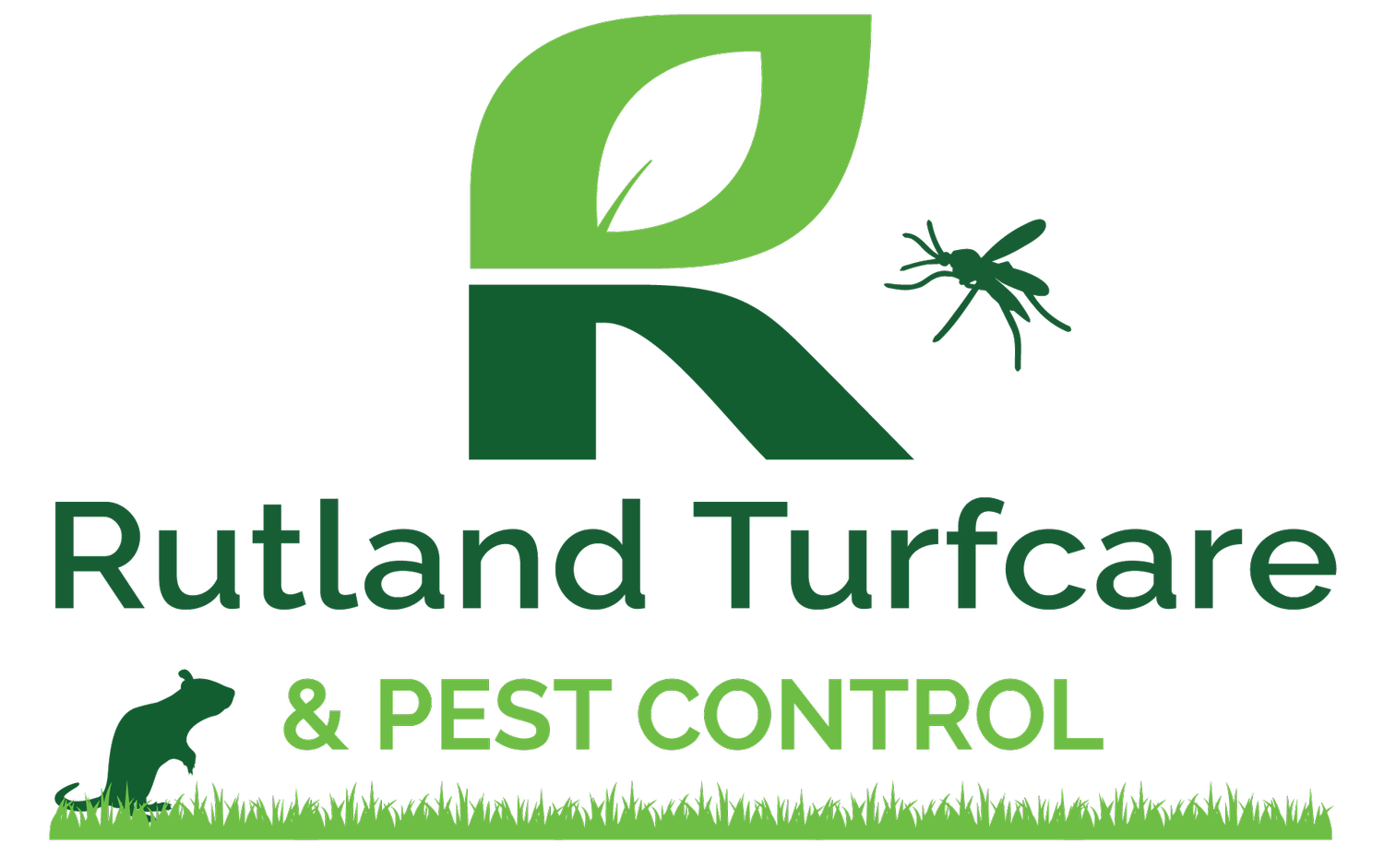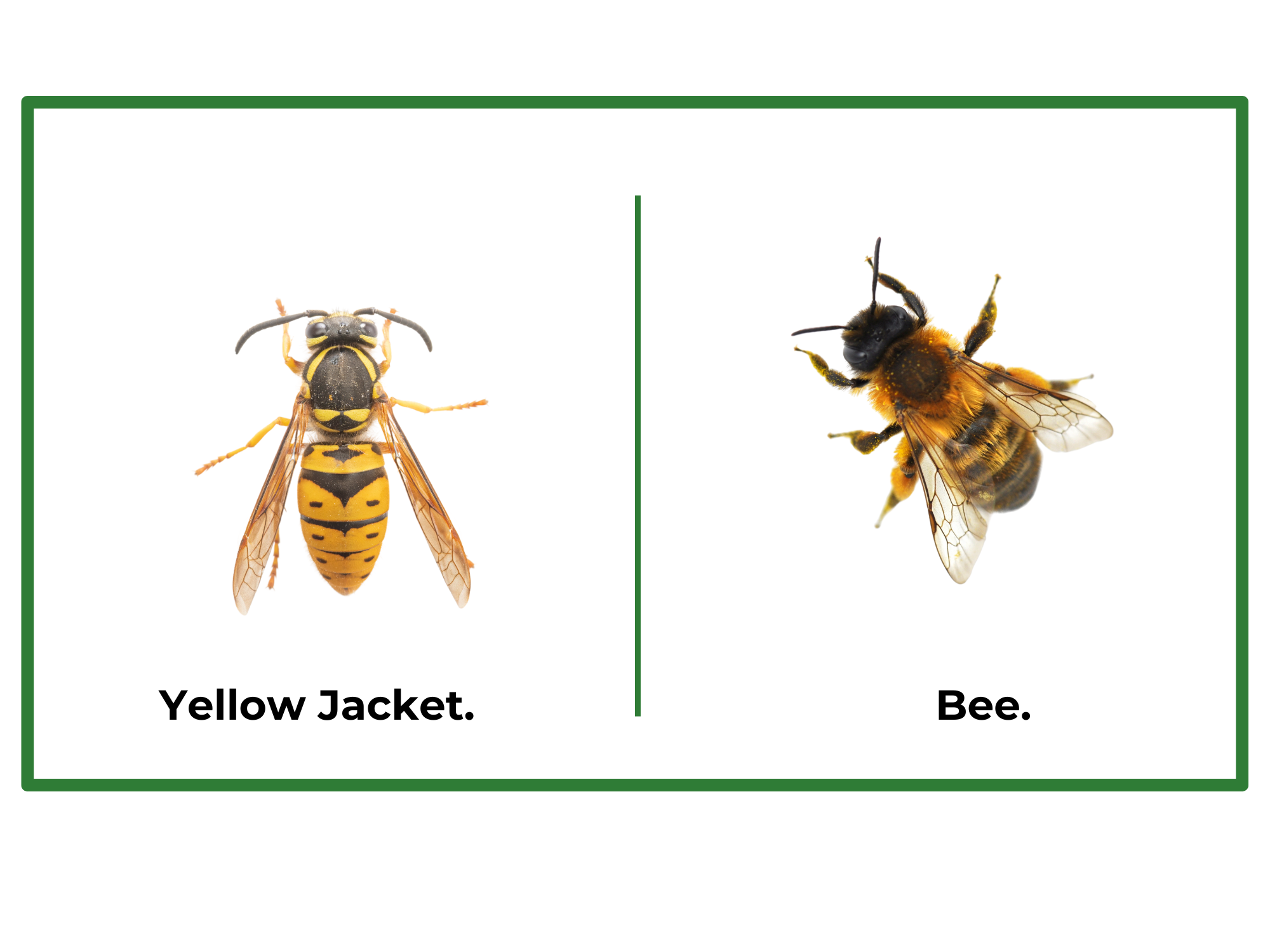A Bee or Not a Bee? How to Identify, Prevent, and Handle Yellow Jackets in Your Yard
Do I have a bee or wasp nest growing under my grill cover?
What should I do if stung?
How can I avoid these situations in the future?
And, do yellow jackets sting?
These are common questions, especially as summer thunderstorms roll in. One of the most frequent concerns involves yellow jackets, a type of wasp often mistaken for honeybees. Let's dive into understanding these insects, their stings, and how to protect yourself.
Related: Lexington and Wellesley, MA: Effective Pest Control for a Healthy Home
Do Yellow Jackets Sting?
Yes, yellow jackets sting, and they can do so repeatedly. Unlike honeybees, which can only sting once before they die, yellow jackets have smooth stingers that allow them to attack multiple times.
These yellow-and-black striped wasps typically nest underground or in hidden places like tree stumps, hollow logs, and even between walls. Their markings often lead to confusion with honeybees, but their behavior is distinctly more aggressive.
Yellow Jacket Stings: What to Expect
Yellow jacket stings are the most common type of insect sting in the United States. When a yellow jacket stings, it injects venom through its stinger, causing sudden and often severe pain, redness, swelling, and itching around the site.
For most people, these symptoms are manageable and subside within a few days. However, for those allergic to yellow jacket venom, a sting can trigger severe reactions like dizziness, hives, vomiting, or difficulty breathing and swallowing.
In such cases, it's crucial to seek medical attention immediately. If you have an EpiPen®, use it right away and call 911.
7 Ways to Avoid Being Stung
Here are a few things you can do to protect yourself from yellow jacket stings this summer.
Avoid Nesting Areas: Stay away from places where yellow jackets commonly build nests, such as garbage cans, tree stumps, and hollow logs.
Dress Wisely: Avoid wearing bright clothing that can attract yellow jackets.
Skip the Scents: Don't wear perfume, cologne, or other scented beauty products that can attract wasps.
Use Insect Repellent: Apply repellent to keep yellow jackets at bay.
Keep Your Feet Covered: Don't go barefoot, especially in grassy areas where nests may be hidden.
Clean Up Properly: Dispose of trash properly and put away food when you're done eating to avoid attracting yellow jackets.
Stay Calm: If a yellow jacket comes near you, try to remain calm. Swatting makes them more likely to sting.
By following these tips, you can enjoy a more pleasant summer without worrying about yellow jacket stings. Remember, if you suspect a nest near your home, consider contacting a professional pest control service to remove it. For more information regarding this and any pest control-related questions, contact our offices in Marlboro, MA. You can reach us directly at 508-980-2893.
Related: Expert Bug Spraying and Pest Control for Frequent Bug Problems in Lexington, MA
About the Author
As a local, family-owned company that’s been in business for over 60 years, we have unrivaled experience and a respected reputation within the lawn care industry. We stand by our quality of work, friendly service, and level of communication.

